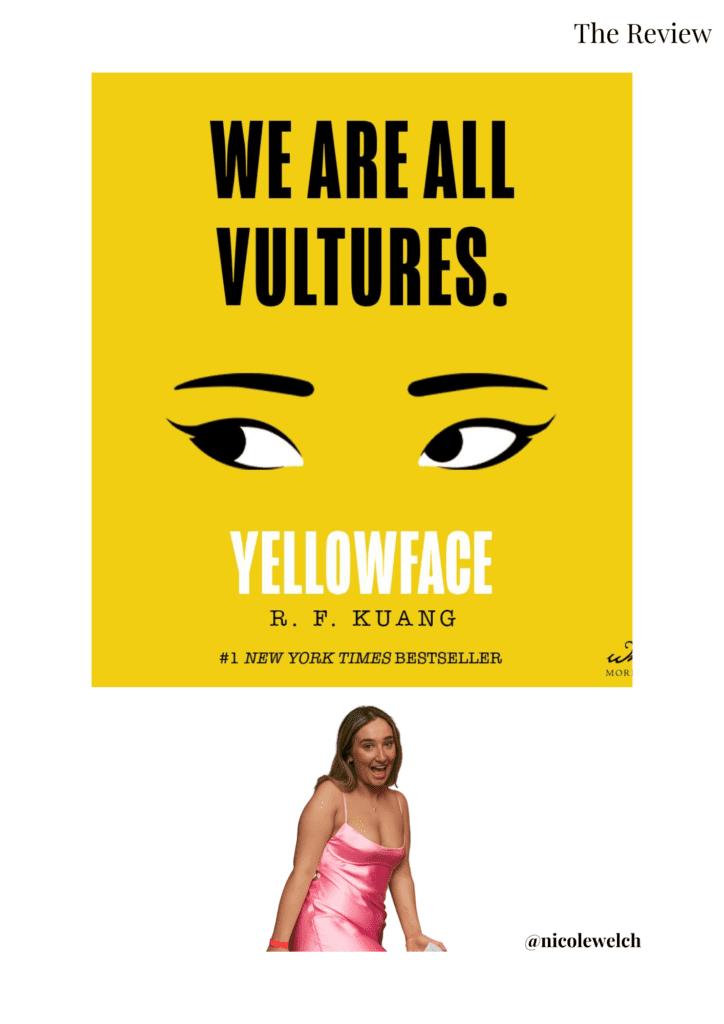Kuang’s novels are always highly anticipated, and rightly so. Her standalone novel Babel in 2022 won her the British Fiction Book of the Year award and nominated for more. Thus, the wait for Yellowface, coming only nine months later onto the scene, had high expectations. The book tells the story of two friends, June and Athena who both studied creative writing at Yale University. June, our very unreliable narrator tells the story of how her demise in popularity and sales for her first novel was met with Athena’s soaring. Kuang’s discussion of race throughout the novel plays into the longstanding racial oppression within the publishing industry, but more so their attempts to eradicate it. June, a young white woman seems to believe Athena’s success is in part due to her being Asian, and the need for diversity within emerging authors leaves little space for June in the market. Described as a ‘satire of racial diversity’, Kuang jumps along the lines of discussing white privilege and greed through the subtlety of her white narrator.

he book comes to life early on, and ‘page turner’ is the right way to describe it. On an unfortunate night where Athena shockingly dies while the pair are toasting to her accomplishments in her apartment, her death comes as anticlimactic and almost humorous in its descriptions. June is left with Athena’s manuscript – a historical novel about Chinese labourers during World War 2 – right in front of her. Longstanding jealousy probes her to take it home with her, and after devouring the amazing writing and editing the book to her own style, June sends it to her agent as her own piece of work.
Arguments of plagiarism and cultural appropriation inevitably emerge, and alongside Kuang’s deep-dive of Twitter, she explores its influence within the book market. Social media works as a symbol in this novel to portray June’s success: her followers rise by the thousands when the book gets released, and then fall drastically when rumours fly and June becomes ‘cancelled’. It is a literary take on cancel culture within writing and Kuang shows the volatility of social media. In consequence, June becomes addicted to it and she obsessively reads her hate comments as if her life depends on it.
Kuang uses dark humour as her narrator defends herself throughout, as if to say to us readers: ‘Wouldn’t you do the same?’. It raises important questions about the publishing industry and the flaws which surround it, but Kuang is careful to keep the jargon to a minimum and she does well to explain the niche complexities that many readers may not be familiar with. It is an excellent thriller and a book so easy to devour you almost wish it was longer. But alongside this we must put up with the narrator’s ‘woe is me’ outlook which although is grating, is purposefully placed by Kuang to create a satire on the white writer in today’s age. The novel is controversial, addictive, and another impressive release from R. F. Kuang. I give it four stars.


